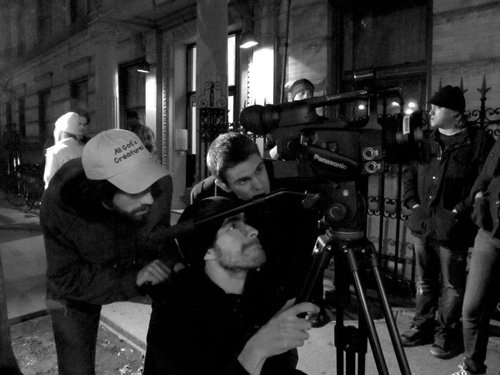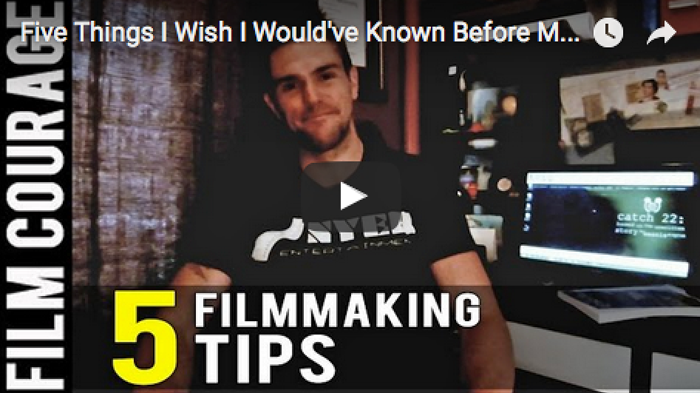
JOSH FOLAN – FILMMAKER/ACTOR
Occasionally, when meandering around New York with time to kill, I’ll wander into one of the few remaining capitalistic literary temples, commonly referred to by the elderly and otherwise archaically – minded as “Barnes & Noble stores.” I almost never actually buy a tangible book while there; who would want those cumbersome things cluttering up their janitor’s closet-sized New York apartment? Instead, I use their inventory as a means of analog googling – I root around through their film shelves for industry-related titles I have never read, and add anything of interest I find to the list in the open- ended task I always have going in my phone/Outlook for eBook download at a later time. Nine times out of ten, I find nothing of merit that I haven’t read. I have many industry-centered sicknesses, and consuming every single book pertaining to it is a close second to my addiction to the actual films the industry churns out. In my perpetual sifting through the mostly useless piles of ones and zeroes that I’ve mainlined over the six years I’ve been working in this industry, I’m going to bat here for the titles
in the following list. I’ve categorized them because I have an organization fetish (the producer in me), and tacked on an aloof quote to each category because I find that literary practice amusing (the writer in me).
History:
“Those who don’t know the mistakes of the past won’t be able to enjoy it when they make them again in the future.” – Diane Elizabeth Duane
1. Easy Riders, Raging Bulls by Peter Biskind – An intrusive look into the power shift from studio to auteur in 60’s, 70’s and 80’s Hollywood from very simply the greatest film journalist of our time. Altman, Coppola, Spielberg, Scorsese, Nicholson, Beatty, Redford, etc.
2. Down and Dirty Pictures by Peter Biskind – Chronicles the rise of the Weinstein brothers and, more generally, the independent film movement of the 1980’s.
3. The Mailroom by David Rensin – It’s not just hearsay that some of Hollywood’s biggest historical players started in mailrooms. Ovitz, Geffen, Diller and more.
4. Star by (you guessed it) Peter Biskind – Warren Beatty unplugged.
a
Memoirs:
“Besides, life is too short to spend it in the company of morons.”
– Jerry Weintraub
1. When I Stop Talking, You’ll Know I’m Dead by Jerry Weintraub and Rich Cohen – No one embodies “making it happen” more so than Weintraub.
2. Rebel Without A Cause by Robert Rodriguez – Rodriguez explains the process of creating and selling his first feature, El mariachi.
3. Tough Shit by Kevin Smith – Indie royalty talks getting the rise and fall of his love for the industry.
4. So You Want to Be a Producer by Lawrence Turman – Another legendary producer explains how he made it.
5. She’s Gotta Have It by Spike Lee – How Spike got that all-important first feature done and out into the world.

Interview Compilations:
“Life’s hard. But it’s a lot harder if you’re stupid.” – Robert Mitchum
1. Breaking In by Nicholas Jarecki – Jarecki interviews twenty mainstream directors about the making of their first feature film.
2. Screen Plays by David S. Cohen – How twenty-five scripts made it down the long, hard road to getting produced.
3. My First Movie: Take Two by Stephen Lowenstein – Ten directors talk about getting it done for the first time.
a
Industry Analysis:
“Most films are bad. They are, finally, just advertisements for themselves – elongated movie trailers, envisioned and cut with less skill than the trailer itself.” – David Mamet
1. Bambi vs. Godzilla by David Mamet – A cynical look at Hollywood through the eyes of a guy who doesn’t give a shit about the rules.
a
Screenwriting:
“You sell a screenplay like you sell a car. If someone drives it off a cliff, that’s it.” – Rita Mae Brown
1. Save the Cat by Blake Snyder – The screenwriting bible when it comes to structure. If you haven’t read it yet, delete Celtx and Final Draft from your computer immediately.
2. Alternative Scriptwriting by Ken Dancyger – After you’ve read Save the Cat, learn how to safely break all those rules you should never break.

Producing:
“A producer is a man with a dream. I say, “I don’t write, I don’t direct, I don’t act, I don’t compose music, I don’t design costumes. What do I do? I make things happen.” – David Wolper
1. Independent Feature Film Production by Gregory Goodell – An in-depth analysis of every step on the road to completing and releasing a feature film.
2. Bankroll by Tom Malloy – Malloy talks the mentality behind finding financing as an independent producer.
3. Filmmakers & Financing by Louise Levinson – The focus is on budgeting, but Levinson delves out a ton of useful advice here.
4. Dealmaking in the Film & Television Industry by Mark Litwak – A veteran entertainment attorney’s compendium of film contracts, specifically targeted for the low-budget realm.
5. The Movie Business by Kelly Charles Crabb – Another seasoned entertainment attorney delves into the nuts and bolts of entertainment law.

Low-Budget Filmmaking:
“And that’s what so much of making movies is about: fighting.” – Sidney Lumet
1. Feature Filmmaking at Used-Car Prices by Rick Schmidt – Ideas galore for getting a film done without having the actual money required to do so.
2. Fast, Cheap, and Under Control by John Gaspard – The story of thirty-three indies that you’ve actually seen, which means they were successful. Lots to learn from this.
a
Marketing & Distribution:
“To you guys from the coasts, the country is New York and LA. Everything in between is just the blur you fly over. But I’ll tell you, the blur is where the audience lives and where you make your money.”
– Colonel Tom Parker
1. Think Outside the Box Office by Jon Reiss – An uber-contemporary look at marketing your film in today’s DIY, digitaly-minded marketplace.
2. The Business of Media Distribution by Jeff Ulin – This is actually a boring as hell read, but if you don’t know everything about the distribution process, you will after reading it.
If you’ve read a title worth my time that’s not on this list, by all means e-mail with it at jf (at) nyehentertainment dot com.

a
BIO:
Josh Folan is a producer, writer, director and actor with professional credits dating back to 2005. His first feature-length film venture, the romantic thriller “All God’s Creatures”, was recently released on DVD through Osiris Entertainment and can be purchased through the film’s website at Allgodscreaturesfilm.com. Folan wrote, produced and starred in the film, which premiered at the 2011 Hoboken International Film Festival where it was nominated for best screenplay and best actress (Jessica Kaye). His second feature, a slacker buddy comedy titled “What Would Bear Do?”, is currently in post production and can be looked up at Whatwouldbeardofilm.com. Folan wrote, produced and starred in it as well, in addition to taking on directorial duties for the first time. You can keep up with his latest short, “it’s just One line”, on Facebook “it’s just One line,”, and follow him (@joshfolan) and his production company, NYEH Entertainment (@nyehentertains), on twitter and facebook if you’d like to stay in the loop with his work.

Check out other Film Courage articles by Josh Folan, including:
SHOOT TO KILL – INSIDE THE MAKING OF ALL
GOD’S CREATURES
HOW I SOLD THIS MOVIE: DON’T TRY THIS AT HOME
























